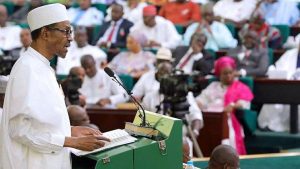The Capital Expenditure of FGNs 2017 Budget
At the highly anticipated presentation of the 2017 Budget in Abuja, President Buhari reiterated his government’s resolve to put a stop to the import dependent nature of the Nigerian economy by pursuing initiatives to make it an export driven one, taking measures to address Nigeria’s infrastructural deficit and also diversify the economy away from the Oil sector to Agriculture, Manufacturing, Solid minerals and services
The plan also recognized that achieving long term Sustainable development depends on the high level of investment on national infrastructure
The president whilst reading the 2017 budget highlighted the following propositions for 2017’s Capital expenditure among others;
- A total of N2.24 trillion (30% of the total budget) is earmarked for Capital Expenditure
- N529billion of this is to be spent on Works, Housing and Power.
- Industry, Trade and Investment is to get N81 billion
- N262 billion is to be spent on transportation
- N140 billion for defence
- Water Resources is to getN85 billion
- Universal Basic Education Commission is to get N92 billion
- Health Sector will be getting N51 billion
 *President Buhari at during the presentation of the 2017 appropriation bill to the National Assembly
*President Buhari at during the presentation of the 2017 appropriation bill to the National Assembly
Worthy of mentioning are some key initiatives proposed to combat the inefficiencies and also draw attention to needs in critical infrastructure;
- An initiative to frontally deal with the issue of indebtedness to contractors
- An Initiative to rapidly develop social infrastructure, especially Rail, Roads and Power. Priority is to be given to efforts to fast-track the modernization of the railway system in the 2017 Budget
- A program to grow the nations digital platforms in order to support innovation and improve productivity and competitiveness. This, the President said will be done through increased spending on critical information technology infrastructure
Observation has shown overtime that the major challenge with Budgets and National Planning in Nigeria is implementation (this is not underplaying the role of Corruption), it is however hoped that the 2017 Budget will be spared from this especially seeing as it is a deficit budget with a gap of N2.3 trillion.
